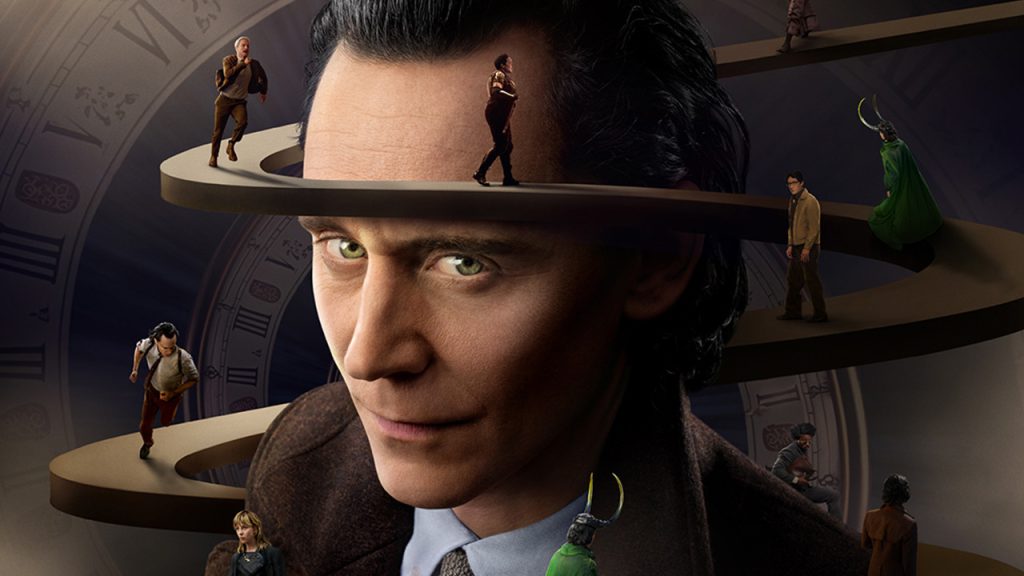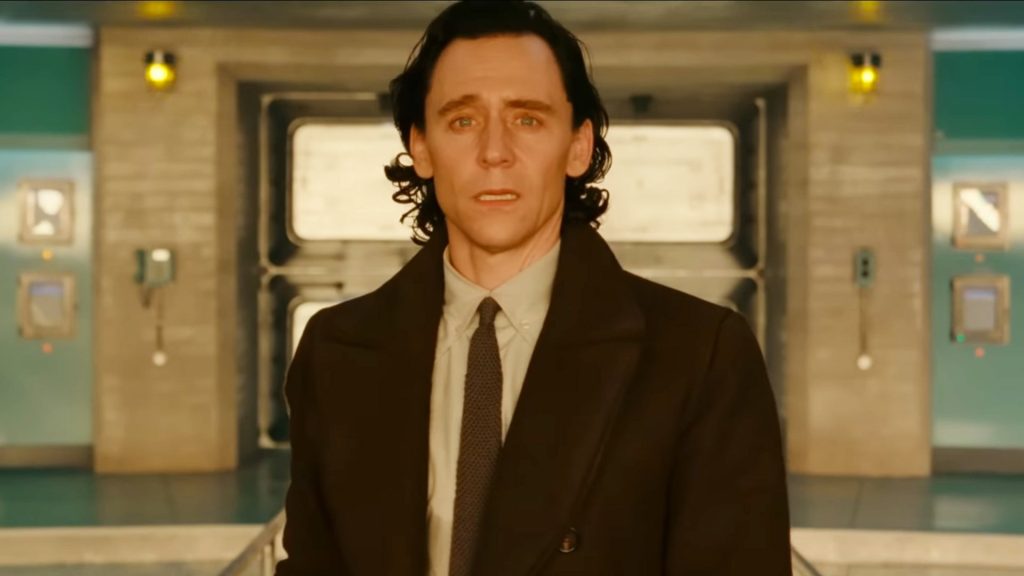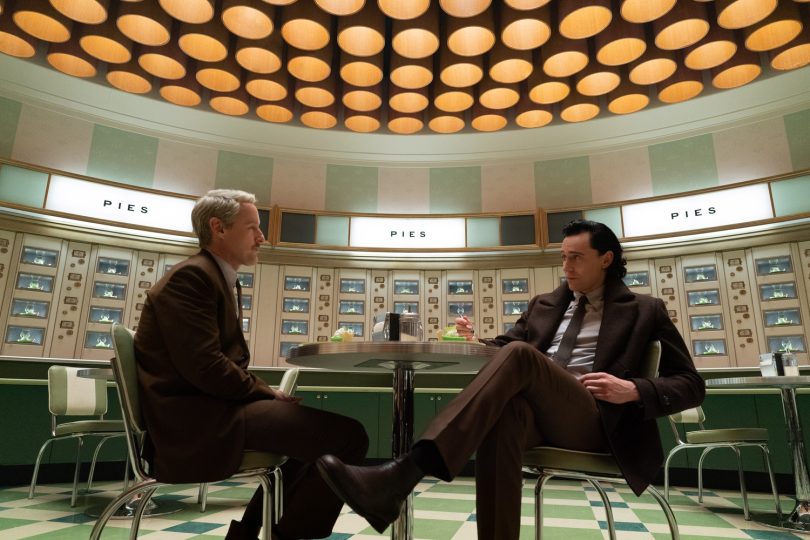In the second season, the God of mischief Loki finds a purpose that takes him to the centre of Marvel’s multiverse
KARACHI:
Loki Odinson — or Loki Laufeyson whoever you prefer — may be the God of Mischief who moves around the thin line that divides good and evil, but he seems to have found his purpose in the second season of the Disney Plus TV series Loki. He could be on the side of the good folks if it suits his needs or turns bad if the situation demands, but here, he mostly stays because of the shocking circumstances he found himself in.
When the first season of the series ended in July 2021, it left a lasting impression on the audience who weren’t least expecting the series to end on a high. The second season fails to do justice to the cliffhanger ending of the preceding season, but it makes up for the debacle by the time the second season concludes. Was it worth the wait? That’s for the audience to find out. For me, it was a breath of fresh air considering the last few Marvel projects have been below par, at best!
The Plot
While the first season revolved around Loki (Tom Hiddleston) and his time as a timeline fixer at the mysterious Time Variance Authority (TVA), the second one features the God of Mischief slipping from one place in time to another, without realising what is happening, and why. Enters Ouroboros “OB” (Ke Huy Quan) who helps Loki understand the predicament he is in and offers a solution that involves teaming up with Mobius M. Mobius (Owen Wilson), Hunter B-15 (Wunmi Mosaku), Casey (Eugene Cordero) and even Victor Timely (Jonathan Majors). In search for answers, Loki and his folks will also have to keep an eye open for Sylvie (Sophia Di Martino), Ravonna Renslayer (Gugu Mbatha-Raw), and Miss Minutes (voiced by Tara Strong) who have an agenda to follow which might clash with Loki’s.

The Good
The second season is not about Hiddleston’s Loki variants but the one variant that was helping TVA catch the other variants. Despite playing the character for more than a dozen years, Hiddleston continues to sizzle as the God of mischief in these six episodes and carries the burden of the second season on his shoulders. He knows what the audience expects from his character and delivers that performance without failing once. Be it in the past that is on the verge of disrupting the future or in the already disturbed present, Hiddleston doesn’t disappoint ‘anytime’.
The recurring characters such as Martino’s Sylvie, Wilson’s Mobius, and Mosaku’s Hunter B-15 are as good as they were in the previous season but they are all overshadowed by Quan’s upbeat repair fellow OB, who sort of steers the plot in the right direction. If Loki and Mobius were buddies in the first season, OB, Loki, and Mobius are the team in the second, since they keep the audience guessing from what will happen next. When the variant of He Who Remains (played by Majors) joins them in their quest to restore order, it all starts to make sense even though it takes ‘time’ to realise.
What makes Loki Season 2 appear as one of the better products from Marvel in recent years is the fact that it doesn’t take itself too seriously. When the situation demands a comedic touch, there is one and when the need of the hour is something dramatic, drama is in the air. Every actor gets a chance to prove his or her mettle in the extended screen time, with additional help from Hiddleston’s central character who keeps getting better with every episode.
During a recent interview with Jimmy Fallon, Hiddleston reflected on the season (possibly series) finale and explained how it effectively closes the book on his character, and why it might be the right time for him to walk away from the MCU.
“I will say this, it all comes full circle,” he says. “It’s the conclusion to the two seasons and it’s also the conclusion to 6 films, 12 episodes, and 14 years of my life. I was 29 when I was cast, I’m 42 now. It’s been a journey.”
He continued to talk about the series and its finale ‘Glorious Purpose’ where his character sort of fulfills the prophecy of the episode’s title. “In the finale, there are echoes and resonances of every version of Loki I’ve played. Can a leopard change his spots? Do we have any free will? And in exercising your free will, you make choices in your own life… every choice you make adds up to the picture of your life. And do those choices inform your purpose? And I think all of us, as people, want happy lives but we also want lives with a purpose. And that’s really what the show is talking about.”
The Bad
The first five episodes in the second season look pale in comparison to the sixth and final one where all the action takes place. That doesn’t mean that the rest of the episodes aren’t worth the time but yes, they could have borrowed a thing or two from the bombastic first season or the stunning second season finale. Too much time is wasted on things that could have been handled in less screen time, and too little time is given to powerful characters like Ravonna Renslayer and Miss Minutes which seems awkward considering time is of the essence to the story.
The first season ended with Mobius unable to recognize Loki which spun the plot on its head but the second season doesn’t do justice to that twist; instead, it carries its own legacy as if branching into a life of its own. At times some of the arcs seemed forced and even half-baked which wasn’t the case in the first season, not even when the series was making a place for itself as the first series revolving around an MCU baddie. The brilliant end to the second season saved the slow episodes but also indicates that Loki might not return anytime soon, which is bad since he seems to be the best thing to come out of the MCU in the last couple of years.

Some critics felt that Hiddleston’s character shouldn’t have been made the central figure in the second season and should have shared more scenes with his fellow characters just like he did in the debut season. The actor sort of disagrees and is grateful to the writers for giving him the opportunity to grow with his character. In another interview with Screen Rant, he says that Loki has evolved from someone who was defensive in Avengers to someone who has a purpose. “I think the Loki in Avengers is defensive. Yes, on the exterior, he’s charming and he seems in control and he’s playful and he’s mischievous, almost provocative, but I think he’s alone and he’s incapable of trust and he’s almost dismissive of the idea of human connection. He’s alone and he wants to be. I think at the end of season two, he has completely redefined what his sense of belonging is, what his purpose is, and he’s come a long way from that place.”
One fails to understand the reason why Eugene Cordero’s variant was Frank Morris (of Alcatraz fame) or why was too much time given to Rafael Casal’s Hunter X-5; a little more thought would have helped these characters grow into something better than just characters placed to cover ‘time and space’, literally. Majors does well in the dual characters of Timely and He Who Remains but the question that beckons is whether he will remain as Kang in upcoming Marvel flicks or will he pave the way for someone else, courtesy of his violent behaviour.
The Verdict
Loki Season 2 comes out as a saviour for the MCU because there seems to be no superhero fatigue element in the series. Loki is a supervillain who is made to do the right thing because if he doesn’t follow the righteous path, he might find himself lost and without friends. He is relatable because the audience finds a part of themselves in the character who might or might not set things straight in the MCU which seems to be deviating from its original mission.
Both the comedy and the dramatic elements make the series worth your while; the second season’s conclusion sort of wraps up Loki’s story but he might make his presence felt again, just like he did when he returned from the dead, on numerous occasions. Yes, the Thor connection was missed in this season but the way the God of Mischief was tested in the finale, it all made up for whatever the series was lacking.
Hiddleston tackled that lacking in his own way, in an interview. “In some ways, Thor and Loki have never been further apart, but they’re also closer together. They’ve been through so much. They’ve been confronted by so much. They’ve had to endure so much and suffer so much. But it’s curious, isn’t it? It’s curious if people change if people move on if they’re brave enough to make peace with the past and acknowledge their mistakes and missteps, sometimes those closest to you find it hardest to accept that you’re different, that they cling to older versions of you somehow. It would definitely be an interesting conversation.”







